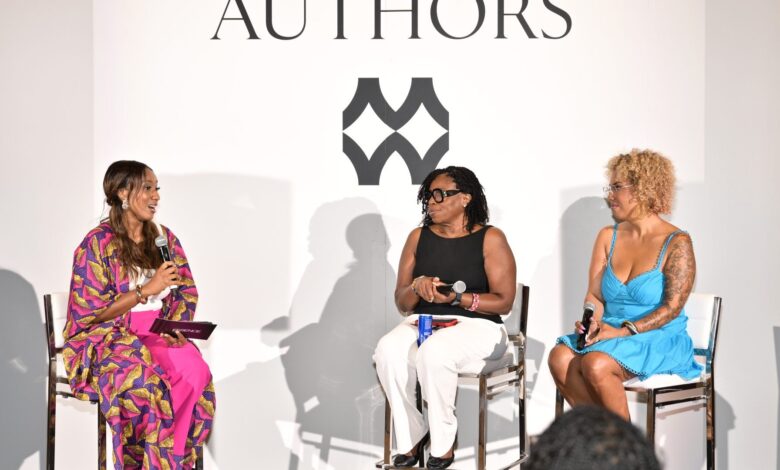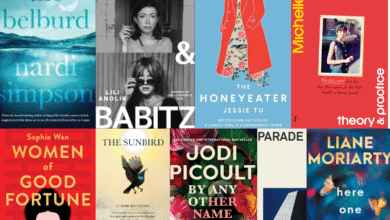Centering Her Story: These Authors Spotlight The Power And Complexity Of Black Women’s Lives – Essence

“If you don’t tell the story, it will easily be erased.” That message by author Victoria Christopher Murray powerfully summed up the motivation for writing stories that center Black women.
Murray, author of Harlem Rhapsody, the new novel that tells the story of Jessie Redmon Fauset, the real-life editor of The Crisis who helped spark the Harlem Renaissance, joined Jamilah Lemieux, writer of the upcoming Black. Single. Mother., on the Essence Fest Authors stage. They offered inspiring perspectives about Black women’s experiences. The two spoke with ESSENCE Senior News & Travel Editor Melissa Noel, sharing insights on why centering these stories is so important.
As the conversation unfolded, Murray explained how, as a historical fiction writer, she is uniquely positioned to bring to light stories that would otherwise be lost. “I am purposefully finding Black women’s stories to tell. I’m doing it intentionally, especially now, because as they try to bury our history, I’m going to excavate our history. As they’re banning one book, I’m going to try to write two.”
Lemieux acknowledged that she initially struggled with the idea of writing about single motherhood due to stigma, but the stories she encountered painted a different picture. To her surprise, women are transcending the shame society places on single mothers. One 19-year-old mom Lemieux spoke to pushed back on the idea of being ashamed, saying, “What do you mean? No shade to you older moms, but I’m trying to have my babies early. I want to be a young mom.” Lemieux added, “She was very happy with where she was, and I found that to be refreshing.”
Meanwhile, Murray shared that she had to grapple with the reality that Fauset—an incredibly impressive woman—was also having an affair with her boss, W.E.B. Du Bois. “What is difficult is telling these fantastic women’s stories and including their flaws.” Murray emphasized that while there wouldn’t have been a Harlem Renaissance without Fauset, “There wouldn’t be a Harlem Renaissance without her affair with W.E.B. Du Bois.” She added, “I knew I was gonna get some pushback, but if I’m gonna tell the truth, I’m gonna tell the truth.” In this way, both books present and challenge how we view women and their choices, embracing complexity.
Building on their shared insight about the importance of storytelling spaces, Lemieux urged writers to have an independent platform where they can publish their work, especially as online platforms for Black women dwindle. “If you’re an emerging writer, get a Substack. It’s a newsletter. Get your friends and family to sign up. If you have a story and you don’t have a home for it, you can publish it to your Substack.”
Similarly, Murray urged perseverance, especially when timelines don’t look as expected. “I’m an overnight success after 28 years—that’s how long it took me. And at any point in time, I cannot tell you the number of times I wanted to quit. But if I had quit, I would have never made the New York Times bestseller list. The thing is that everybody’s journey is different, so don’t measure it in terms of time.”
Together, Murray and Lemieux exemplify why sharing and supporting stories by and about Black women is essential. Murray’s new novel, Harlem Rhapsody, is available on Amazon, while Lemieux’s Black. Single. Mother. will be released March 10, 2026.
Source link




